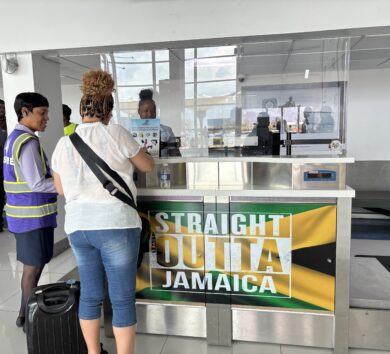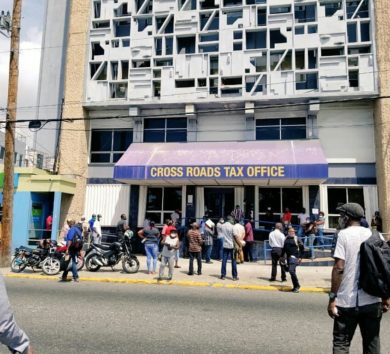

The authorities in Trinidad and Tobago have uncovered some $27 billion in suspicious financial transactions that occurred between 2019 and 2020.
This is a big jump from the $1.7 billion in suspicious financial transactions, which was reported in the previous reporting period in the twin-island republic.
The Financial Intelligence Unit (FIU) of Trinidad and Tobago, which uncovered the suspicious transactions, is digging deep at finding the perpetrators of the 1,831 Suspicious Transaction and Suspicious Activity Reports (STR/SAR) that are being investigated.
This is the most suspicious transactions uncovered by the FIU in its 10 years of existence. It represents an 80 per cent increase from the previous reporting period.

In its report for October 2019 to September 2020, which was tabled in parliament on Thursday ( March 4), the FIU reported that the increased number of suspicious transaction is due to stepped up fraudulent activity due to COVID-19 pandemic and demonetisation of the cotton $100 notes. The report, which was tabled by Finance Minister Colm Imbert pointed to a 141 per cent increase in (STR/SAR) submissions from financial institutions and an 80 per cent increase in the submissions from listed businesses, compared to the previous year.
Big drop in reports on suspected terrorism financing
However, there was an 88 per cent decrease in Suspicious Transaction/Activity reports on suspected terrorism financing, apparently due to the collapse of the ISIS terrorist group. The FIU received 12 STR/SAR reports on suspected Financing of Terrorism compared to 97 in the previous reporting period.
This represented an 88 per cent decrease of Financing of Terrorism-related STR/SARS and may be attributable to the apparent collapse of terrorist group ISIS. Eleven intelligence reports linked to foreign terrorist fighters were noted.
Of the 1,831 reports received amounting to $27 billion; 1,517 were completed transactions amounting to $884.4 million. The remaining 314 attempted transactions were worth $26 billion.
They mainly cover the activity of customers approaching banks with suspected fraudulent contracts and pending incoming wire transfers. On the overall increases in STR/SAR, the FIU explains there has been a significant increase in both the number and value of these attempted suspicious transactions can be directly attributed to numerous customers being scammed with fake/fraudulent foreign contracts to engage in business expecting millions of US dollars or Euros to be wired to their local bank account.
COVID-19 influence on fraudulent activity
This is in addition to the COVID pandemic, which has resulted in an increase in fraudulent activity being perpetrated against people as well as transactions that were flagged and stopped included numerous third party transactions being attempted between unconnected parties under the guise of payments for “gifts” and “blessings”.
“It is evident that coming out of the demonetisation exercise, the amount of cash exchange or attempted to be exchanged, lacked transparency in certain instances to properly identify their source of funds.”
Nigel Stoddard, acting director of the Financial Intelligence Unit of Trinidad and Tobago
Also contributing to the increase was the old $100 bill demonetisation process where several transactions were flagged and stopped. The FIUs report stated that the demonetisation exercise of the old cotton-based TT$100 currency note resulted in a significant increase in the submissions of STR/SAR reports by reporting entities with 750 submissions received.
FIUT Acting Director Nigel Stoddard pointed to the fact that “it is evident that coming out of the demonetisation exercise, the amount of cash exchange or attempted to be exchanged, lacked transparency in certain instances to properly identify their source of funds”. The FIU report highlighted an increasing prevalence of online scams and Ponzi/pyramid schemes.
An analysis revealed the existence of criminal networks where people were being defrauded via online romance scams, online market place scams and others. It also pointed to an increase in the incidence of Ponzi/pyramid schemes being operated under the guise of “non-traditional sou sou” and operated as “investments” schemes with the names Loom, Giving Circle and Blessing Bank to name a few.







Comments